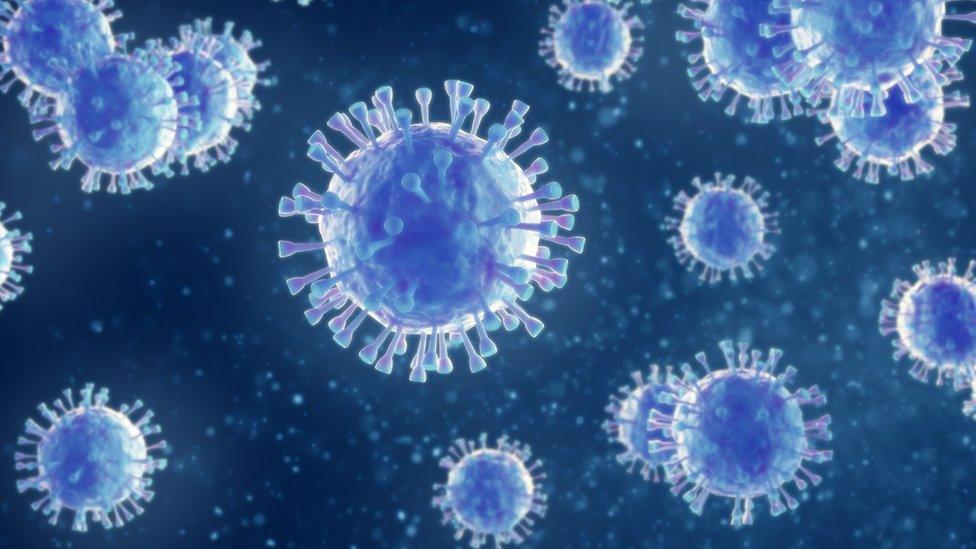AD26 virus discovery 'may lead to cancer vaccines'
- Published

Scientists have now found the AD26 virus uses a type of sugar on the surface of cells to infect cells
A breakthrough in understanding how a virus infects the body could lead to new vaccines and treatments for diseases like cancer, researchers say.
Scientists at Cardiff University's School of Medicine have learned how a virus, known as Adenovirus type 26 (AD26), infects human cells.
The information could be used to make vaccines to stimulate immune systems to fight cancer.
The leader of the research, Alexander Baker, said it provided "new answers".
The AD26 virus is a pathogen which causes severe respiratory diseases, but could be used as a key component in vaccines, and is currently being used in a vaccine to fight the Ebola epidemic in Africa.
Previously, it was thought the virus used a protein called CD46 to infect cells, but scientists have now found the virus uses a type of sugar on the surface of cells to infect cells.
The research was published in the peer-reviewed journal Science Advances, external, which aims to promote significant developments in science and engineering.
Mr Baker said: "Until now, there is little, if any, understanding of how the virus works as a vaccine or as a disease. Our research provides new answers.
"Now we've established how it enters the body and spreads, scientists and clinicians can use this knowledge to target the sugar-binding site to develop drugs to prevent its spread and develop vaccines to fight life threatening infections.
"Cracking the virus's code could prove important in understanding how the viral vaccine works effectively to protect against life-threatening infections."
- Published3 September 2019

- Published22 August 2019
